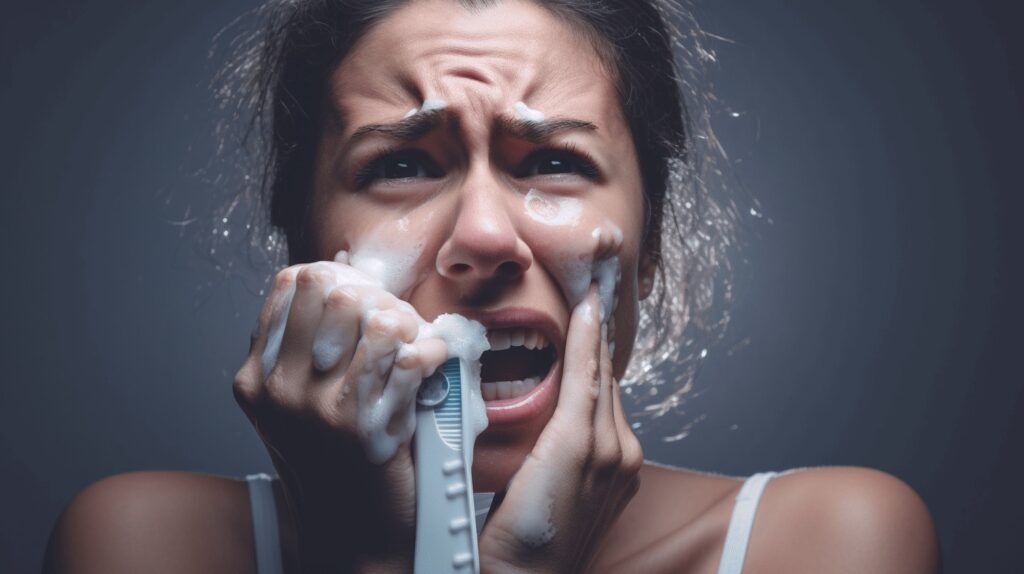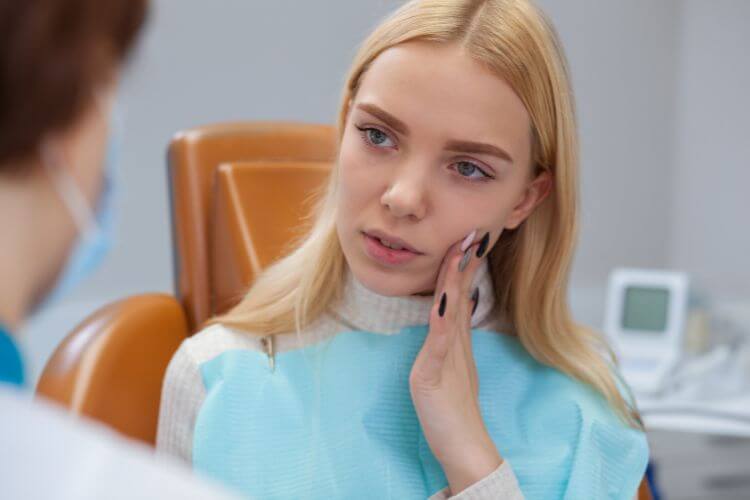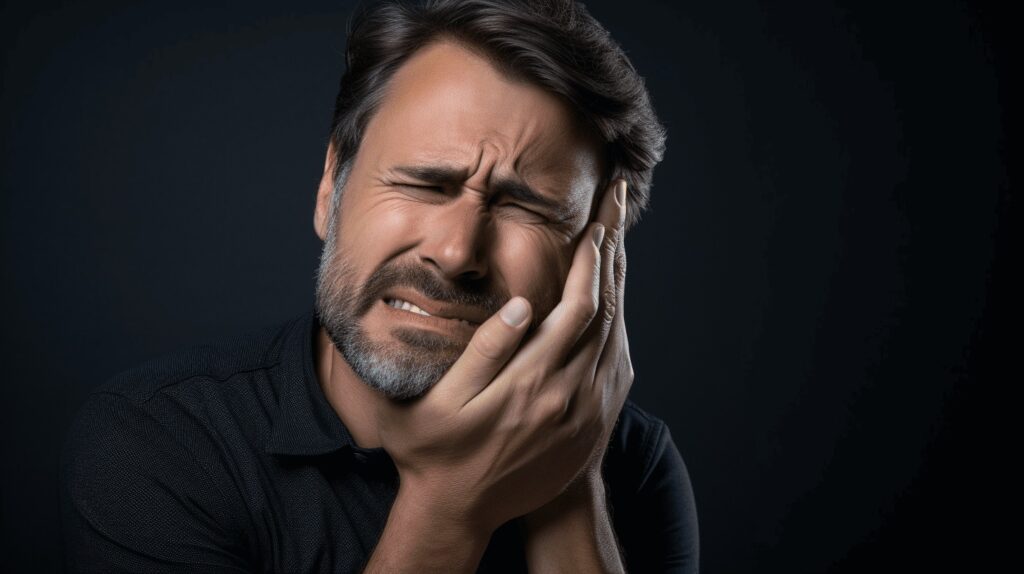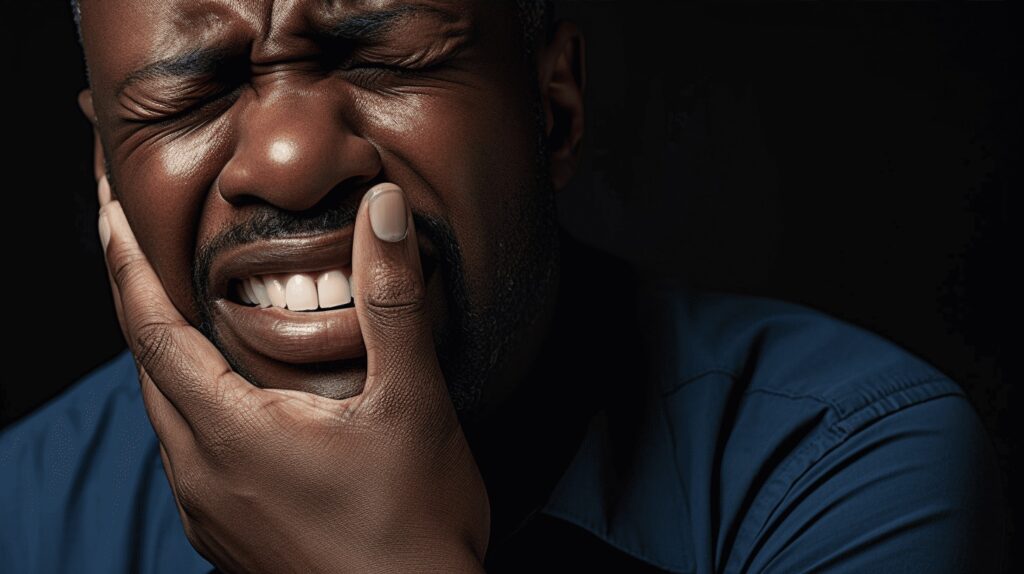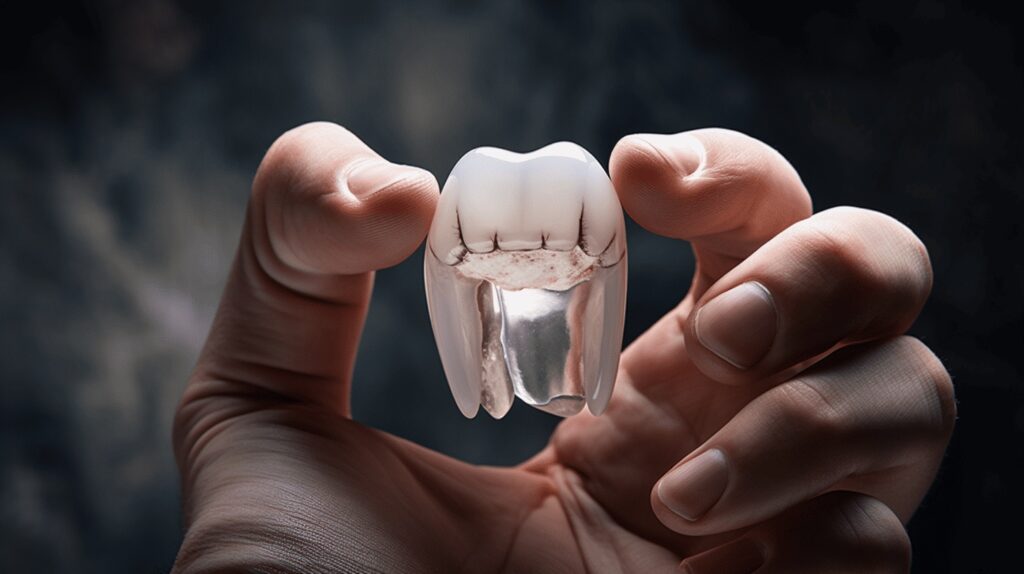We’ve all experienced it, that sudden, excruciating toothache that chooses the most inconvenient time to strike. Or perhaps, a mishap on the playground that leaves you with a chipped or even knocked-out tooth. These are all occurrences that fall under what would be classified as dental emergencies.
We all know dental health is important but do we truly understand how critical it is, particularly when faced with a dental emergency?
Hang in there with us as we delve into the importance of oral health and dental emergencies, how to handle these emergencies, the various treatment alternatives available, and of course, prevention measures to minimize the occurrence of such incidents.
From hockey pucks to popcorn kernels, there’s a whole world waiting to disrupt our dental peace, but don’t worry, we’re here to ensure you’re prepared and capable to handle anything that threatens your dazzling smile.
Table of Contents
Importance of Oral Health and Dental Emergencies
Role of Oral Health in Overall Well-being
The adage “you are what you eat” can be refreshed to “you are what you eat, how you consume it, and how well you maintain your mouth after.” You see, a healthy mouth is much more than a radiant smile. It’s an integral part of our overall well-being, a critical aspect that the majority understand, with 87% of people acknowledging the peace of mind imparted by healthy teeth and gums. Often, we don’t give this part of our body the importance it deserves until we encounter dental problems, which can escalate quickly into daunting dental emergencies if not adequately managed.
Our mouth serves as a gateway to our body. From helping us relish our favorite meals to enabling our speech, it underpins many facets of life we often take for granted. Proper oral health can help prevent a variety of complications – such as gum disease, tooth decay, and even heart disease. Conversely, ignoring oral hygiene can lead to problems more serious than just cavities or bad breath, pushing us to seek urgent dental care.
Kids aren’t exempt from dental issues either. In the USA, a significant percentage (13.2%) of children, from ages 5 to 19, bear untreated dental caries. Let’s also not forget the adults; a surprising 25.9% of those aged between 20-44 have untreated dental caries!
Our oral health is an asset we need to defend ardently, and this starts by regular visits to the dentist. However, statistics show that around 42% of adults still don’t make these crucial visits. Think of it as a long-term investment – small, regular check-ups today can save us from big, expensive treatments tomorrow! 🦷
Statistics on Dental Emergencies
Speaking of big, expensive treatments, let’s take a scalpel, oh sorry, a closer look at dental emergencies. Now these aren’t your ordinary toothaches, dental emergencies are serious business. They could occur at any time, leading to excruciating pain, discomfort, and the potential loss of teeth.
We see this all the time in the USA, where around 2 million annual emergency department visits are necessitated by dental pain. That’s a staggering number when compared to the 68.5 million adults who lack dental insurance. Simple arithmetic will tell you that’s almost 30 visits to the emergency room every minute for dental pain alone – enough to make your head spin, right?
Interestingly, dental emergencies aren’t solely a consequence of neglect, but a product of complex circumstances as well. For instance, the COVID 19 pandemic strongly impacted oral health services by causing the shutdown of a mind-boggling 198,000 dental offices and active dentists, resulting in a rise in emergency dental procedures.
We need to turn these alarming statistics around, starting by investing in preventative measures. Proper oral hygiene, regular dental check-ups, and a sound understanding of Common Dental Emergencies can set the foundation for better oral health. Additionally, establishing a ‘dental home’ for children early in their lives can significantly improve oral health outcomes.
Our teeth aren’t just for pretty smiles. They play a crucial role in our overall health and well-being as well. So let’s pledge to care for them, and in return, they’ll give us reasons to smile and be healthy, every single day! 😄
Handling Dental Emergencies
One of the most critical responsibilities we bear towards our oral health is ensuring we’re always prepared for the unexpected. Dental emergencies possess a unique knack for showing up unannounced, transforming routine dental maintenance into immediate situations requiring swift and effective action. With everything from excruciating toothaches to injury-induced tooth avulsions making up the catalogue of dental emergencies, there’s a literal treasure trove of potentially daunting scenarios we ought to consider.
Thanks to the evolution of modern dentistry, we now have a slew of effective quick-relief measures and urgent oral health services at our disposal, ensuring the response to dental emergencies is a massively far cry from what it used to be. That said, having a thorough understanding of how to handle these situations can make the difference between pain relief and prolonged agony. If you’re grappling with a tooth emergency, don’t break a sweat. We have you covered! Let’s dive in, shall we?
Immediate Actions for Dental Emergencies
Did you know that the first few minutes post a dental injury is a critical window that holds the key to effective relief? Here are basic immediate measures you could undertake in the face of a dental whirlwind:
- Rinse your mouth gently with lukewarm, mild salt-water solution
- Apply gentle pressure to the bleeding site with gauze, or even a cold tea bag
- If you’re dealing with a toothache, consider rinsing with lukewarm water, using some dental floss, and applying a cold compress for quick relief
Treatment Options for Dental Emergencies
Regardless of the nature or severity of the dental emergency, a golden rule to hold onto is scheduling an immediate appointment with a dental professional. Meanwhile, here are some immediate treatment options one might consider:
- Dental emergencies can be treated through reinsertion and splinting in cases of knocked-out teeth
- If you’re dealing with a broken or chipped tooth, dentists might consider immediate temporary repairs
Emergency Dentistry and Stabilization
Having access to emergency dentist services can be a real difference-maker when it comes to handling urgent oral situations. Often, these are the instances that require prompt intervention to alleviate pain, prevent further damage, or even save a tooth. Clinical prioritization also plays a significant role here, with dental offices inclined to attend to emergencies swiftly.
Importance of Prompt Dental Care
It’s simple: The quicker you get professional dental attention, the better your chances of experiencing relief, or potentially saving a knocked-out tooth. Time is of the essence, and every minute matters. To highlight an example, the odds of successfully reimplanting a knocked-out tooth increases dramatically when immediate dental care is sought.
Proper Handling of Knocked-Out Teeth
Handling a scenario where you’ve suffered a knocked-out tooth requires a careful approach. It’s essential to handle the tooth by the crown, avoid touching the root, and keep the tooth moist until you can reach the dentist. Rinsing gently and using a cold compress can help manage swelling and pain until professional help arrives. Consult our in-depth guide on Handling Knocked-Out Teeth for further assistance.
With immediate attention, prompt professional care, and utmost caution, you can certainly tide over dental emergencies efficiently. But remember, prevent potential emergencies through maintaining exemplary oral hygiene, avoiding traumatic injuries when possible, and scheduling regular dental check-ups. From all of us here, remember to keep those pearly whites shining! 😁
Prevention and Precautions
Let’s face it, prevention is better than cure – a motto that holds especially true in the realm of dental health. By following some basic yet effective preventive care measures, you can keep dental emergencies at bay while maintaining a beaming smile. So, what’s our game plan going to be? Let’s dive in! 👍
Prevention for Dental Emergencies
When it comes to avoiding the dreaded late-night toothache or cracked tooth, prevention is your best pal. Here are a few steps you can take to secure your pearly whites:
- Visit your dentist regularly for check-ups and professional cleaning
- Avoid biting on hard things like ice cubes or candy, which could crack your teeth
- Seek early treatment for dental issues before they become emergencies
Remember, preventing dental emergencies is just as important as knowing how to handle them.
Maintaining Oral Hygiene
Sparkling, healthy teeth aren’t just about looking good. They’re the cornerstone of overall oral wellness. Here are a few tips to maintain your oral hygiene:
- Brush and floss regularly: Aim to brush at least twice a day and floss once daily
- Use fluoride toothpaste: Fluoride defends teeth against cavities and can even heal early onset decay
- Limit intake of sugary drinks and snacks: High sugar diets can accelerate tooth decay
By practicing good oral hygiene, you can help save yourself from pricey emergency visits to the dentist. Make use of our guide on Preventative Dentistry for Emergencies, suited to busy professionals on-the-go.
Avoiding Traumatic Injuries
Traumatic dental injuries often occur in accidents or sports-related incidents. It’s important to always use a mouth guard or full-face helmet when participating in sports. Additionally, refrain from using your teeth as tools to open packaging or bottles – you don’t want an avoidable mishap!
Conclusion
When it comes to dental emergencies, the importance of being prepared cannot be overstated. Understanding how to respond to urgent dental situations can make a world of difference to saving your smile. Never ignore a dental emergency. Your quick actions, timely care, and preventive measures are the key to maintaining a healthy mouth.
However, the best defense will always be good dental hygiene maintenance, along with regular dental check-ups. By establishing these habits, we can not only prevent dental emergencies but also detect potential issues before they become serious problems.
We, at Wilshire Smile Studio, are committed to providing you with the latest and most effective dental care services. Our an-emergency-dental-care team is equipped, experienced, and ready 24/7 to give the care you need in any dental emergency that may arise.
Remember, your smile is priceless, let’s together make it a journey of good oral health, patient education, and preventive practices.
Healthy Smiles need a perfect dental home, Visit Wilshire Smile Studio and call (323) DEN-TIST (336-8478) for a free consultation.
Frequently Asked Questions
1. What is considered a dental emergency? Dental emergencies include severe toothaches, knocked-out teeth, broken or cracked teeth, jaw injuries, severe gum bleeding, or any condition causing intense pain and requires immediate attention.
2. What should I do if I have a tooth knocked out? If you have a tooth knocked out, try to locate it, hold it by the crown (not the root), rinse it gently with water, and place it back into its socket if possible. If not, put it in milk or a tooth preservation kit, and seek dental care immediately.
3. How can I relieve a severe toothache at home before seeing a dentist? To temporarily relieve a severe toothache, rinse your mouth with warm saltwater, use over-the-counter pain relievers, apply a cold compress to the affected area, and avoid eating foods that may worsen the pain.
4. Are dental emergencies covered by insurance? Dental insurance coverage may vary, but most plans cover emergency dental care to some extent. It’s best to check with your insurance provider to understand your policy’s coverage for dental emergencies.
5. Should I go to the emergency room for a dental emergency? For dental emergencies that involve severe pain, facial swelling, or significant bleeding, it is recommended to seek immediate treatment at an emergency room. However, for common dental emergencies, it’s best to visit a dentist or contact a dental helpline.


